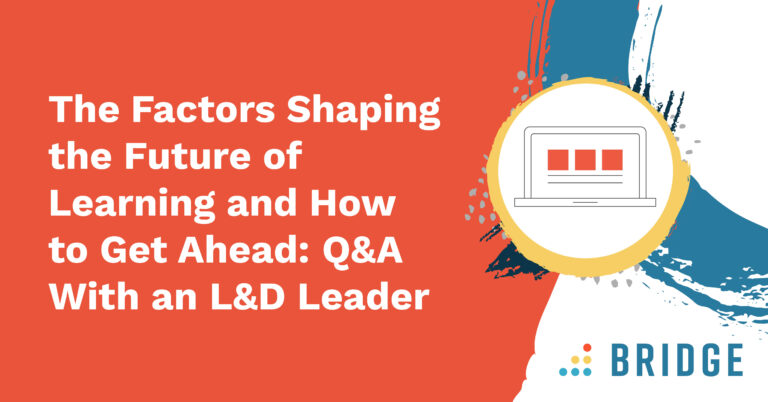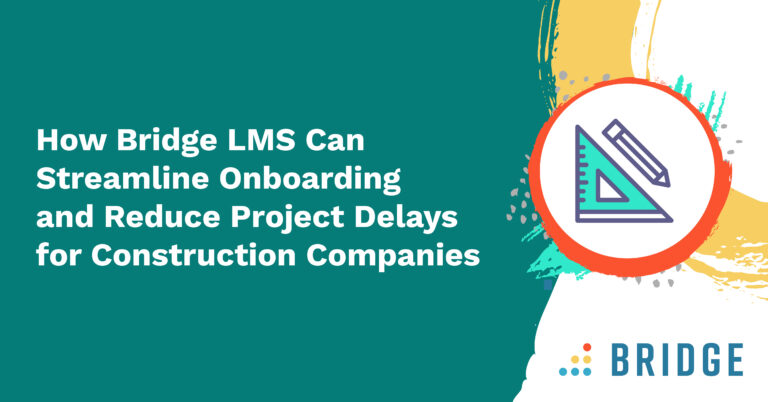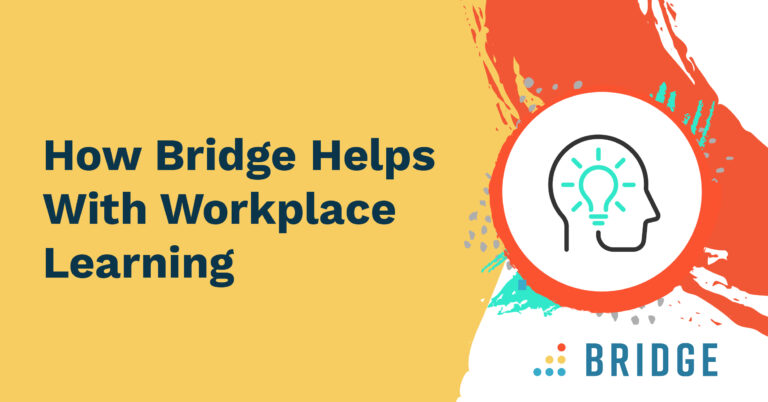Learn how Bridge provides a framework to have crucial career conversations between managers and employees that help them articulate what drives them in their careers.
When you stand back and look at the big employee learning and performance picture, few things matter more than understanding what people really want from their careers, what they value, and what drives their decisions. Because without that fundamental knowledge, you can’t attract great talent. You’ll never get the best performance from your employees—no matter how well you train them. And you certainly won’t convince people to stick around for the long haul.
Asking the Tough Questions
So how much do you really know about what motivates your employees? And how much of that “knowledge” is based on incomplete information, anecdotal evidence, or outdated conventional wisdom? These are tough (even uncomfortable) questions, and there’s really only one good answer. To crack the career drivers code, you have to invest the time and effort to talk to your employees about their biggest career drivers in a detailed, systematic, and meaningful way—and then structure and adapt your employee development programs accordingly.
We’re Going to Need More Sticky Notes …
Of course, that’s much easier said than done. But it’s a challenge that my team was determined to take on. We spent more than a year conducting in-depth interviews and conversations with more than 600 people from dozens of organizations around the United States about what motivated and drove their career decisions.
Armed with a few trusty easels, hundreds of sharpies, long stretches of blank conference room walls, and a staggering number of multi-colored sticky notes, we set out to explore new, more productive ways to talk about how people view their careers, what they want to accomplish, and what they care about most. This included brainstorming and prototyping models and activities to uncover the deeply personal (and often elusive) factors that drive people’s complex career decisions.
The results were enlightening. And a little surprising. We discovered that most people:
- Don’t actually have a specific, concrete vision for where their careers will go, especially when it comes to pursuing specific roles.
- Care significantly more about finding a meaningful purpose and making an impact than about chasing roles, titles, and promotions.
- Value and seek out broad, transferable skills like communication, active listening, and problem-solving more than narrow, job-specific skills.
- Would rather feel valued for the everyday contributions they make than receive formal recognition or awards for achievements.
Putting Your Employees in the (Career) Driver’s Seat
What do these discoveries mean? It’s important to note that this was just one effort to shine a new light on career drivers in modern workplaces. But it highlighted the value of fostering real, meaningful, and ongoing conversations with employees about their personal career drivers. And it validated the importance of replacing rigid, top-down employee development approaches with programs that fully embrace, support, and align with the factors that impact employees’ career decisions the most.
Looking for More?
Check out our Career Driver Exercise for more information about the framework to have crucial career conversations between managers and employees that help them articulate what drives them in their careers.




